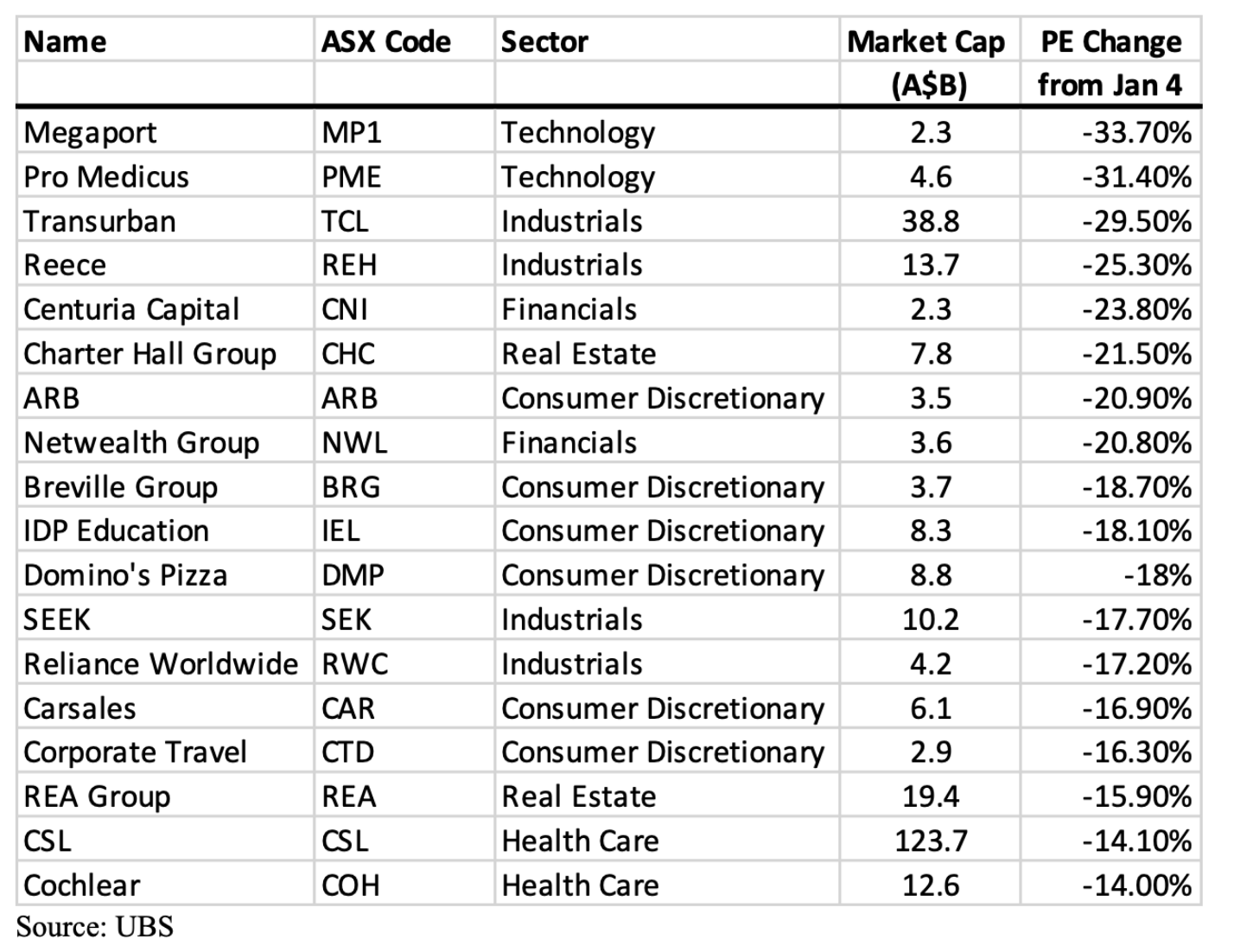Why it’s time to capitalise on the carnage in tech stocks
The current equity correction has taken a lot of the froth out of the market. But caught up in the carnage have been a number of high quality companies with years of growth ahead. Which is why I think this could be a very good time for investors to take a look at some of these businesses, including Pro Medicus, Megaport and REA Group.
January has seen an acceleration of selling that began as a rotation out of high-flying tech stocks in late November and December (the Nasdaq peaked on November 19, 2021). The carnage for technology stocks deteriorated further when the US Federal Reserve’s last policy meeting minutes revealed a more hawkish attitude towards rates and bond purchases than many expected.
Simply put, it now appears central banks are accelerating their normalisation of both monetary policy and balance sheets. As one broker eloquently observed, “it follows that equity market valuations…also normalise.”
According to Goldman Sachs prime broking, during the last two sessions of December 2021 and the first two sessions of January 2022, technology selling, in dollar terms, reached its highest level in more than a decade.
Inspired by central bank ‘Wealth Effect’ ideology, negative real yields on cash have been in place for the bulk of the last 11 years giving investors ample opportunity to be frog marched out of cash and into almost anything else. As we have written about frequently over the last five years, booms and bubbles have hitherto formed in everything from property and bonds, to coins, stamps and low digit number plates, to NFTs, cryptocurrencies and anything else related to the blockchain and the metaverse.
In the stock market, technology and healthcare sector valuations, particularly in the US (in turn thanks to private equity’s game of pass-the-parcel) became the most stretched at the beginning of the year. And US equities, perhaps consequently, had been expensive by most measures.
As bond yields now move higher, the short-term ownership of high-flying tech names – particularly long-duration stocks with earnings pushed well out into the future – becomes more difficult to justify.
Not all technology companies are created equal
I have often written, investing in shares involves the ever-present risk of setbacks, and quality is the investor’s best friend. An examination of how the current tech sell-off has played out reveals some merit in the idea that not all technology companies are created equal.
Last year I pointed out companies including Apple, Amazon, Microsoft, Google and Facebook generated levels of profitability previously unfathomable. As these companies become larger, their profitability also increases. As their equity grows so too does their return on equity. Think of a bank account with $1 million earnings interest of 1% per annum, and as the equity in the bank account grows to $1 billion, the interest rate earned also rises to 40% per year. Such business economics weren’t even contemplated in business schools just a decade ago.
These superior business economics perhaps explain the discriminating selling of tech names in the first month of 2022. Perhaps the most useful observation however is about investor behavior itself.
As commonly defines these pullbacks, investors have simply shortened their time horizons. Long-term investment plans have been abandoned and in their place is a preoccupation with what will happen to prices tomorrow. Interest in long-term company fundamentals is exchanged for short-term fears about interest rates.
The current equity correction will cull much of the leverage and froth built up in recent years. What it won’t do is change the course of growth for many high-quality companies.
Setbacks are a normal and healthy part of investing. Indeed, the only unusual thing is their absence. The market has been swinging manic-depressively for centuries. From wild bouts of optimism – when only the most enthusiastic appraisals will be entertained, to periods of deep depression – when sellers are willing to sell even the best companies for cents in the dollar, investors can count on one thing: opportunity.
Now is therefore the time to rebalance portfolios, taking advantage of the lower prices and PE deratings that have been experienced by some of the highest quality names in the market (see Table 1).
Table 1: Relative ‘De-rates’ since 4 January 2022

And keep in mind, none of the assets now falling are held in large volume by systemically important financial institutions. Banks don’t own cryptocurrencies or NFTs, or the promise of smart contracts to reduce agency costs and remove the middleman. They don’t own the profitless prosperity stocks either.
In other words, this sell-off will not lead to a financial crisis. This is therefore a plain vanilla correction that will see investors who have taken on too much risk in the quest for returns suffer more than those who have been disciplined about quality and value.
And remember my call that 2022 should be a good one for investors? There are 11 months to go with plenty of potential opportunities now available.
Never miss an insight
Enjoy this wire? Hit the ‘like’ button to let us know. Stay up to date with my content by hitting the ‘follow’ button below and you’ll be notified every time I post a wire.
Not already a Livewire member? Sign up today to get free access to investment ideas and strategies from Australia’s leading investors.
2 topics
18 stocks mentioned

